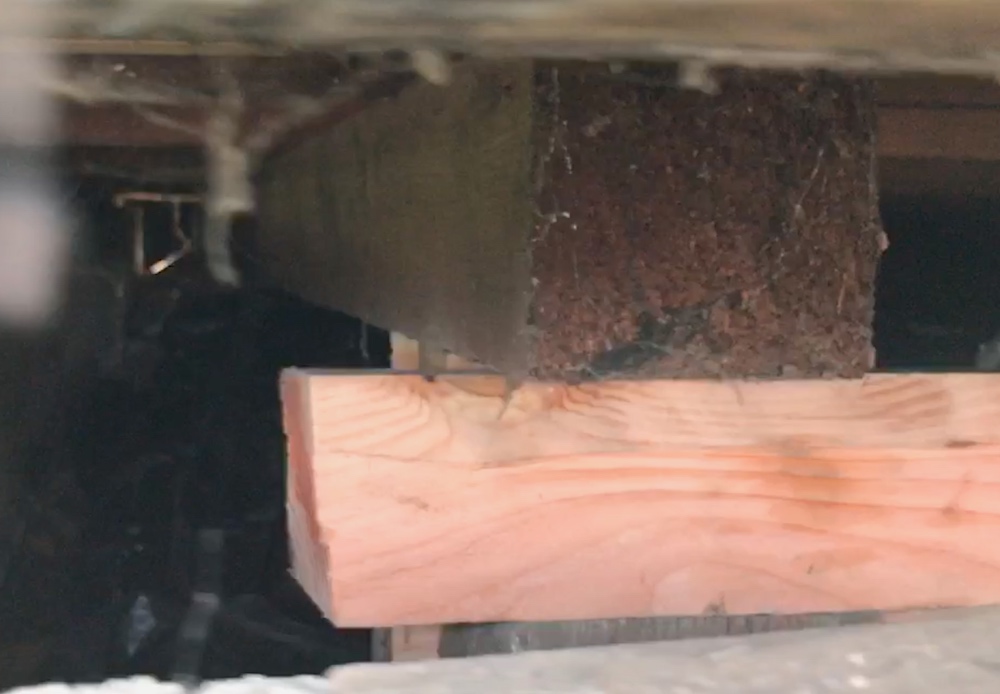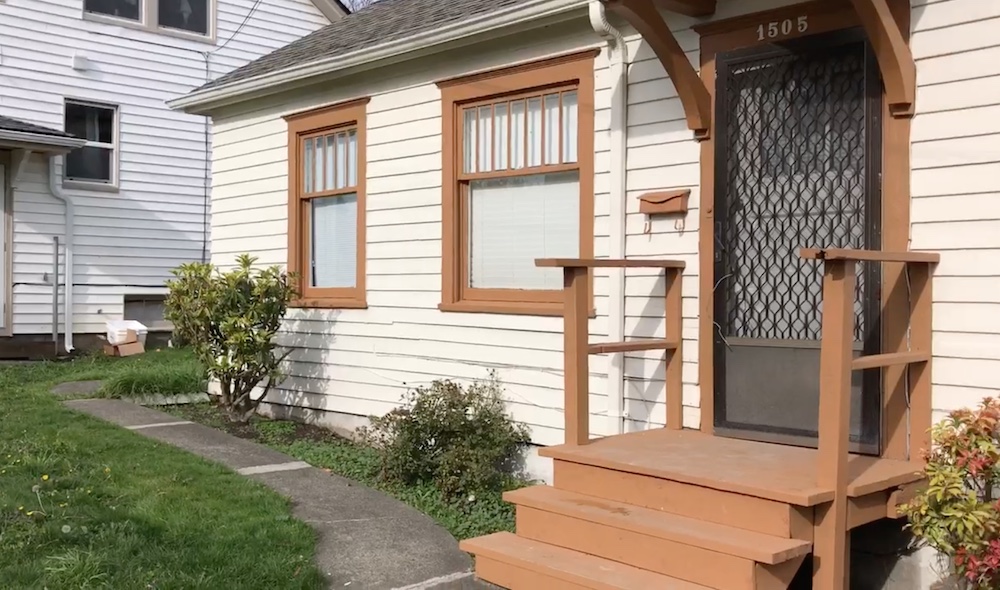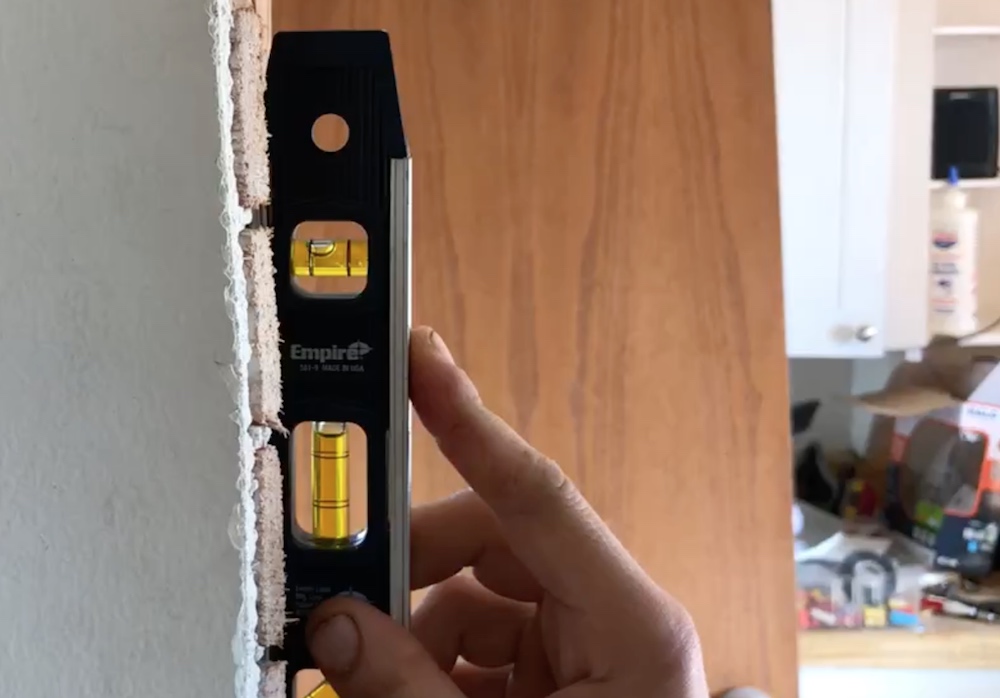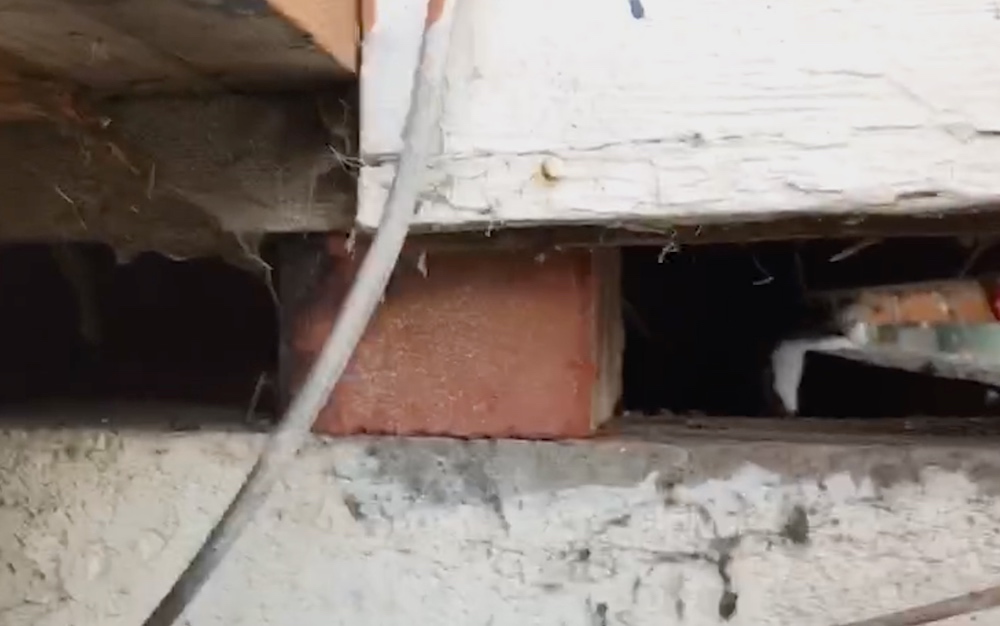Some friends recently shared a foundation story that many readers may relate to. This couple bought their first home, which later turned out to have significant foundation problems. Here’s an account of their buying and inspecting process, what went wrong, and how to avoid this scenario from happening to you.
Chris and Liz Buy a Home
Chris and Liz were saving up to buy their first home. As their savings grew, they started attending open houses and getting excited about this new endeavor. They finally found their dream home after a few months; a century-old split level with a mother-in-law in back. It was perfect! The mother-in-law needed work to be rentable, but Chris could do most of the work himself.
During the inspection, a few flags came up about the foundation on both structures, but mostly for the smaller unit. Both foundations were sinking. The smaller unit also needed to be stabilized. Chris and Liz requested the foundation be fixed on the smaller unit, and the seller complied. They received a receipt for the work, and believed the repair was done. A few weeks later, the couple closed on the property and finally had their first home!
It wasn’t until Chris began work on the mother-in-law that he noticed some unusual quarks. There were sunken floors, stuck windows, and not everything was leveled. When he knocked out a portion of a wall, things began to go downhill. The front and back doors would not fully open. When Chris put a level to the wall, it was clear the house was shifting and not leveled.
Chris called up his brother, and they began to investigate. The foundation looked okay from the front. But then Chris’ brother, David, noticed some extra siding hiding the top of the foundation. This is what they found behind the siding:
Previous owners had shoved in pieces of wood and bricks to level the foundation and keep it in place. It was all hidden under the extra siding. The guys then crawled under the unit to see if the seller had really repaired the foundation problem. Technically, they did repair it. But this was not a permanently fix; it was merely a temporary repair. A contractor had gone in and installed a few beams to support the foundation. There was no leveling, stabilizing, or even installing the beams to the end of the foundation (as seen below).

This was never going to last. And it certainly wasn’t going to withstand the renovations the couple had begun.
Chris and Liz’s dreams of homeownership were not going well. They didn’t have the money to fix the issues. Liz thought maybe it would be okay. Chris was leaning that way too, but was still uncertain. David, who had prior experience with foundations and repairs, explained just how significant the problem would become if left unattended. He knew leaving the foundation as is was not an option. After discussing all the options, Chris and Liz knew they had to do something about the foundation.
READ MORE: Causes of Foundation Problems
Chris and David spent a few days trying to stabilize the foundation themselves. With the couple’s limited budget, there was no way for them to hire a foundation company right away. Still, they needed to address the foundation issues to make the house livable. David and Chris did the best they could to level and stabilize the unit with jacks and added beams. They knew this was temporary, and would cost them more money in the long run. But it was their only viable option.
Once the unit was leveled, everyone got back to the remodeling project. Chris and Liz are recovering from these efforts, and have rented out the unit. They are now saving up to hire a foundation company to fix their home once and for all.
Avoiding These Issues from the Start
Many homeowners, especially first-time buyers, don’t typically think about the foundation of a home. We’ve all been more concerned with the neighborhood, school district, or visual aesthetics instead of the one thing that holds it all together- the foundation. We previously detailed how to assess a home’s foundation during the buying process.
READ MORE: Foundation Assessment Tips for Homebuyers
But what about when foundation issues comes up in the inspection report? There are ways of handling this to ensure the work is done properly and is not a temporary repair.
Inspection Reports & How to Follow Up
Chris and Liz had an inspection done on their home. If you are debating whether this expense is worth it, it is! Most real estate agents will tell you this is the most important thing you can do during the buying process. An inspection will be able to detail all the things you can’t readily see about the house.
You want to know everything you can about the property before making a purchase of this magnitude.
When the inspection report comes back, ask your agent to walk through the report with you. Look at all the categories for how the foundation was assessed and all of its potential problems. Chris and Liz did look at this, and felt the repairs on the mother-in-law unit were more important than the main house’s repairs. They consulted with their agent about what repairs to ask for, and what they could live without.
At this point in the buying process, you have the right to ask for more information about the foundation. Things you may want to inquire include:
- If any repairs were previously made to the foundation. If so, you can ask for evidence of the work (i.e. a receipt or invoice). It may be harder to find out, but asking about the age of the foundation could be helpful. This shows if it was replaced during the life of the house.
- Ask if the the current owner was told of any foundation problems before they purchased the home. This will show you just how long the problems have been known, and if anything was done to address them.
- Inquire about landscaping and drainage problems on the property. Does water adequately drain away from the foundation?
Requesting Repairs from Foundation Experts
Once Chris and Liz discussed the inspection report with their agent, they requested the mother-in-law’s foundation be fixed. The seller agreed to this repair. This sounds great, and like it will all be done properly, but we know that’s not how this story turns out.
Failing foundations require foundation experts to fix the problem.
Contractors can do many things well. Permanent foundation repairs, though, is not one of them. This work requires specialized skills and equipment. Anything less is a mere temporary solution.
As a homebuyer, request a foundation company be brought in for a free estimate. These professionals will be able to explain why the foundation is failing, what repairs are needed, and can guarantee their work. Most agents will handle coordinating these efforts with the seller’s agent. After, the cost of a permanent fix can be negotiated with the seller. This may look like the seller completing the recommended work, or lowering the price to compensate for the expense. Chris and Liz could have saved a lot of time and money had they checked on who was completing their foundation repairs.
Ensuring the Job is Done Right
Once Chris and Liz received an invoice for the foundation work, they assumed everything was okay and proceeded with closing on the property. An invoice may seem official, but who the invoice comes from is what matters.
To avoid this scenario, ask for a warranty or guarantee on the foundation work completed. A reputable foundation company will stand by their work so you can be confident the job was done properly.
Another option at this point is to complete a follow-up inspection on the work done. Inspectors can come out to check the repairs made, and if the problem was addressed properly. Had Chris and Liz done this, their follow-up report may have shown the foundation work was not a permanent solution to the problems.
Confidence in Your New Home
Chris and Liz have learned some valuable lessons about buying a home, and homeownership. This lesson cost them $500 in temporary repairs, with a professional foundation repair quote for $3000. That’s a costly lesson.
It is possible to avoid these expenses, and have confidence your home is set on a firm foundation.
It takes learning about the importance of a home foundation, and how to ensure the repairs are done right the first time. We hope this couple’s story and tips to avoid this scenario are helpful during your homebuying process.



